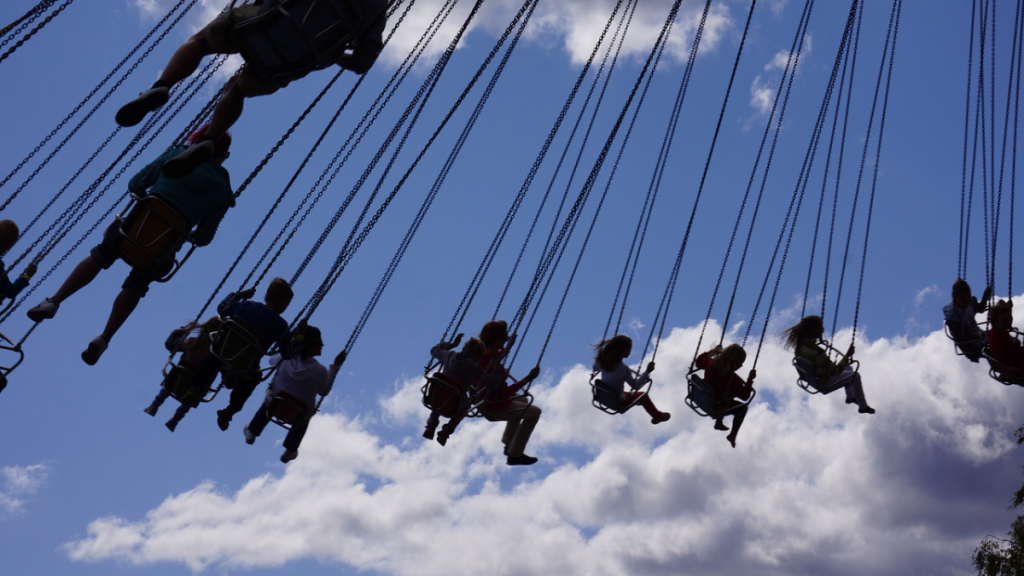A few weeks ago, park staff asked Bina Ramesh, a 22-year-old woman celebrating her birthday at Six Flags Great Adventure in Jackson, New Jersey, to change her attire because they deemed it inappropriate—something that Ramesh interpreted as an obvious ploy to discriminate against women.
The story does make the park look pretty unsympathetic. It seems that the male park security guard who confronted Ramesh believed that her V-neck shirt was too provocative for a female to wear. Rather than buying a new t-shirt from the theme park, Ramesh switched shirts with her male friend and re-entered the park unmolested.
Ramesh’s perspective is that a sexist double standard exists when it comes to the dress code policy of Six Flags. She describes her experience via social media:
As I was entering Six Flags I was stopped by security because my top was considered inappropriate for the park’s standards. Apparently when a boy wears the same top it’s fine, so thank you for swapping shirts with me in the parking lot because we still live in a world of double standards and sexism.”]
The Thing About Six Flags That Media Outlets Don’t Talk About
Ramesh might be correct that Six Flags has a different standard for women than for men. But I want to add a slightly different perspective to the story, one that most media outlets haven’t brought up: Even if Six Flags’ dress code is archaic, it may determine its own dress code policy as a private entity.
Its current dress code policy states:
In keeping with our family-friendly environment, and for safety reasons, Six Flags enforces a dress code. Proper attire must be worn in the park at all times, including shirts and appropriate footwear. Clothing or tattoos with offensive language or graphics are not permitted at any time. Examples of clothing not permitted are those displaying:
- Profanity
- Pornography
- Graphic violence
- Support of drugs and drug use
- Gang symbols
- Promotion of discrimination against any group
Bathing suits may be worn only in water park areas. Park admission may be denied if clothing or tattoos are deemed to be inappropriate by management and the Guest refuses all reasonable options. Shirts cannot be turned inside out as a solution.”]
A Private Business Can Make Bad Calls on Dress Code (If It Really Wants to)
True freedom and liberty allow for private businesses to discriminate based on whatever criteria they wish; they may subjectively define what is appropriate or inappropriate in the context of their grounds and services.
Even if Six Flags openly stated that it held women to a different dress code than men (or makes a bad call in an individual case), this is not a violation of any individual rights because Six Flags does not owe anybody entry into its private establishment.
Just as an individual can determine the entry policy into his or her own home, a private business should be free to do the same.Why You Have to Side With Six Flags Even If You Believe It Discriminated Against Bina Ramesh
Those who sympathize with Ramesh believe it was unfair for Six Flags to have allowed the male friend to wear the same exact shirt they denied Ramesh entry for wearing—in other words, anatomical differences should not be a criterion for discrimination.
Whether they believe that what happened to Ramesh was unfair or not, true proponents of liberty and freedom have to side with Six Flags in this dispute. Just as Hooters and the NFL require women to dress very scantily to maintain employment, other private organizations and businesses may demand the opposite as a condition to their contract of services.How Bina Ramesh Made Six Flags Pay
Of course, each organization is responsible for the effects its policies have on its business. And in the case of Bina Ramesh, Six Flags got to deal with a lot of negative press, social media attention, and public pressure, prompting it to issue an apology to Ramesh.
s/o @SixFlags security guard for inconveniencing my day because because he couldn’t keep his eyes off my cleavage. pic.twitter.com/0iJpJFJ4l7
— Bina Ramesh (@Binaonthemoon) July 10, 2016
“]
Just as its fair for a private business to discriminate, it’s fair for the public to freely express its dissatisfaction with the policy.
Individuals can vote with their dollars; private businesses are held accountable by the public. If enough people put pressure on Six Flags to change their policy, this would be freedom at work. That’s a great, functional alternative to having the government force its hand in requiring all private businesses to apply their policies equally.



